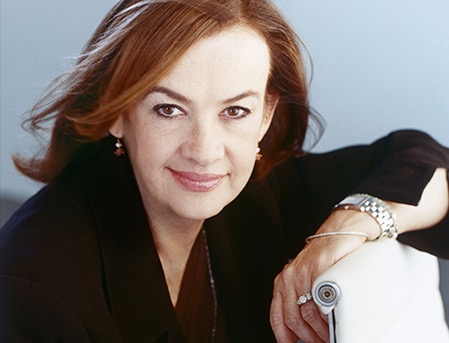The Five Spot: Judy McGrath

The smarter way to stay on top of broadcasting and cable industry. Sign up below
You are now subscribed
Your newsletter sign-up was successful
Judy McGrath's uncanny ability to relate with youth culture turned MTV into a media meteor. For 30 years, she created groundbreaking programming from Unplugged to The Real World and became one of TV’s most powerful execs. Her new company is Astronauts Wanted: No Experience Necessary, a name ripped from an ad for the U.K.’s space program. Screens may have changed, but not McGrath’s work: finding cool properties and people capturing an era. Projects include YouTube Red film A Trip to Unicorn Island; Tawk for Verizon’s go90; animated parody Trumpocalypse with NowThis. Upcoming are drama Socio, with MTV and Canvas Media, about a digitally-savvy teen sociopath; AussieGirl, with Tammin Sursok (Pretty Little Liars); WeGotIssues, an absurdist news-pop culture show for Seriously.tv. Astronauts has also optioned young adult novel The Hidden Memory of Objects. An edited version of McGrath’s conversation with B&C contributor Jill Goldsmith follows.
How do your current shows compare with early MTV fare, which was equally cutting edge in its day?
Astronauts Wanted is an extension of what I have been most excited by over my whole career, the zeitgeist and popular culture and youth. I always believed that the generation coming up is going to write the future and is exciting to understand and connect with. It’s about story. The story of young people starting out. Lilly Singh figuring out how to pull off a world tour. Nora taking you into her world.
What’s the biggest difference dealing with online personalities versus traditional celebrities?
These influencers and social stars have really built a relationship to their fans with no filter. It’s very direct and when they come in they have a sort of confidence they carry with them. A calling and a responsibility. Lilly Singh didn’t say to her fans ‘I’m going to make a movie for six months—goodbye.’ She kept posting, she kept in touch. Their connection with the fans is so in their DNA and has to be in the DNA of everything you make with them.
When will linear television disappears?
I think the word ‘linear television’ will fade away before the actual form will. TV is still a gigantic business. It has incredible penetration and loyalty. You have Game of Thrones and Walking Dead and Westworld and people who love them can still love Vice and Lilly Singh. There’s just a massive increase in content production. I think it’s about marketing and voice and how the heck you get noticed. And how fast you can build a brand once you’re discovered.
The smarter way to stay on top of broadcasting and cable industry. Sign up below
Why can’t established media companies seem to be digital leaders?
I think that may have been true but I feel it has changed. The big media companies are doing really interesting things and taking chances. Look at Nancy Dubuc and Viceland; Disney picking up Maker; the new venture just announced by Discovery ($100 million investment in digital publisher Group Nine Media). Viacom did Snapchat (multiyear ad deal). They are absolutely using their might and their resources.
What are your thoughts over the meltdown at Viacom? Personally, my career and my role building those brands and ultimately as a leader was the greatest experience anyone can have in life and I am a great believer in those brands. There are so many creative people there. Nickelodeon and MTV are really beloved brands and they definitely have a place in current and future culture.
